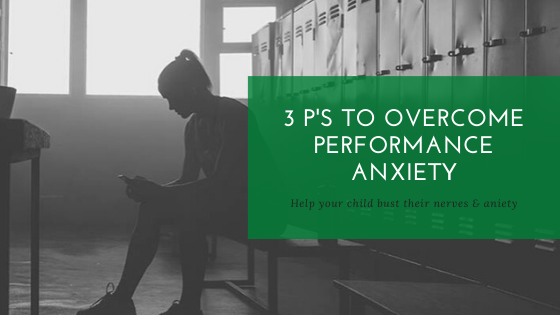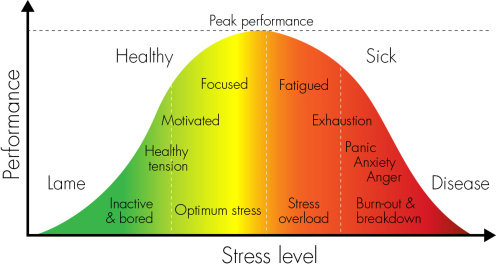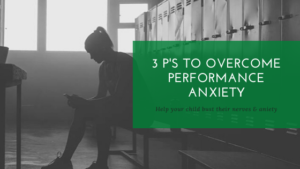Let me start by saying - everyone gets nervous.
Yes, some more than others, but everyone experiences nerves on some level. Nerves can be healthy if channeled correctly.
After all, it means you care about what you're doing.
Performance anxiety on the other hand, is unhealthy.
Performance anxiety is an extreme case of nerves caused by your fear of not being able to perform and carry out the task (whatever that may be).
Signs your child might have performance anxiety include;
- Not being able to sleep before a game
- Trembling
- Hyperventilation
- Sweating
- Nausea or vomiting
- They have a rapid heart rate
- They don’t want to play
Again, some nerves are completely normal and even healthy, but if they start getting to the point where they affect your child’s ability to perform or cause them to not want to go to the game, it becomes performance anxiety.

Here are what I call “The Three P’s” to help reduce performance anxiety…
PREPARATION
This is without doubt the #1 contributor to your child feeling confident heading into a game.
Confidence stems from;
- Knowing you’ve done the job before and/or
- Knowing, deep down, that you’ve done everything you can do to prepare.
The better your child’s preparation, the more confident they will be. And confidence is a great nerve buster.
This means doing extras outside of training, working with some quality coaches etc.
I know anytime I went into a game knowing I’d taken short cuts, I felt that little bit more nervous.
PLANNING
Once they’ve done the preparation, spending 20-30 minutes prior to their game doing a bit of planning will certainly help.
Highlighting their strengths and what they’re doing well is a great idea because this is what they want to focus their game plans on during the game.
Identifying what they’re not doing so well so they can stay away from that during the game.
E.g. “I’m playing really well square of the wicket against fast bowling, so that’s where I’m going to focus on scoring my runs. I’ve been struggling against spin so I’m going to be a bit more cautious when the spinners come on”
Hashing out their game plan clears their mind and allows them to relax a bit more the night before and morning of a game.
Even thinking about their opposition if they know them and having plans against certain players.
They should have clear batting and bowling plans.

PERSPECTIVE
Once they’ve done everything they can to prepare and plan, if they’re still not feeling great, give them some perspective.
At the end of the day, what’s the worst that can happen?
They get a duck and 0/50.
They’ve probably done that before and they will do it again in their lifetime.
The world didn’t end last time it happened did it?
Whilst we all love the game and care about our performance, it really doesn’t matter what happens in our U/14 club game on the 14th of November 2020 in the grand scheme of things does it?
There are a lot bigger things going on in the world and I think stepping back and taking a higher level look at it like that can really help remove fear and anxiety.
If did for me when I found myself getting a bit caught up anyway.
I hope that helps!
Author: Nick Fitzpatrick
Co-Founder of Australian Cricket Institute


